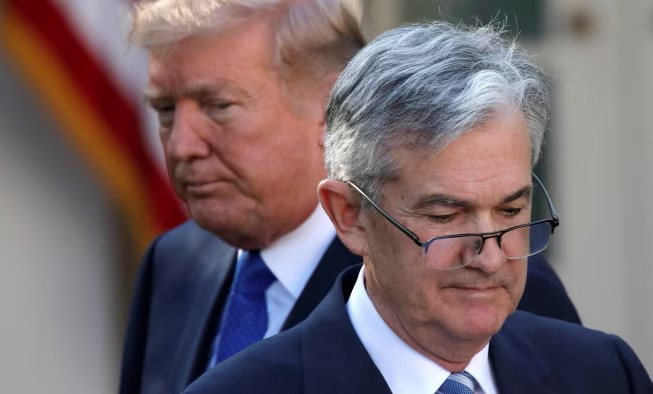President Donald Trump has threatened to remove Federal Reserve Chair Jerome Powell over interest rate policies. The dispute could shake US financial markets.
Trump wants lower rates to boost economic growth and support his tariff strategy. But the Fed, led by Powell, has resisted cutting rates too quickly.
Trump made his stance clear during a statement on Thursday.
“If I want him out, he’ll be out of there real fast, believe me,” he said, referring to Powell, whose term lasts until 2026.
Powell responded firmly, saying he would not step down early.
“I consider the bank’s independence over monetary policy to be a matter of law,” Powell declared.
The Fed has traditionally operated without political interference, but Trump’s repeated criticism has put its independence in question.
Experts Warn of Market Risks
Some economists believe Trump and the Fed could collide.
“They will come into conflict,” said Stephanie Roth, chief economist at Wolfe Research. “But the Fed is not going to succumb to political pressure.”
Many analysts expect Trump’s tariff strategy to push prices higher and slow growth. That would make rate cuts unlikely in the near future.
“They’re not going to react because Trump posted that they should be cutting,” Roth said. “Doing so would be a recipe for disaster.”
Legal experts argue that Trump may not have the power to fire Powell unless there is legitimate cause.
“Independence is absolutely critical for the Fed,” Roth explained. “Countries without independent central banks have weaker currencies and higher interest rates.”
Mark Zandi, chief economist at Moody’s Analytics, agreed.
“We’ve had strong evidence that impairing central bank independence is a really bad idea,” he said.
Can Markets Push Back?
The White House may challenge a 1935 Supreme Court ruling that limits the president’s ability to fire independent agency heads.
Even if Trump wins the legal battle, financial markets could resist any interference with Fed policy.
Bond yields surged after Trump’s tariff plans triggered market uncertainty. Investors reacted negatively, forcing the administration to delay higher tariffs.
“You can’t control the bond market. And that’s the moral of the story,” said Diane Swonk, chief economist at KPMG.
“And that’s why you want an independent Fed.”
Like 👍, Comment, share this article, and Follow us on our social media handles.






